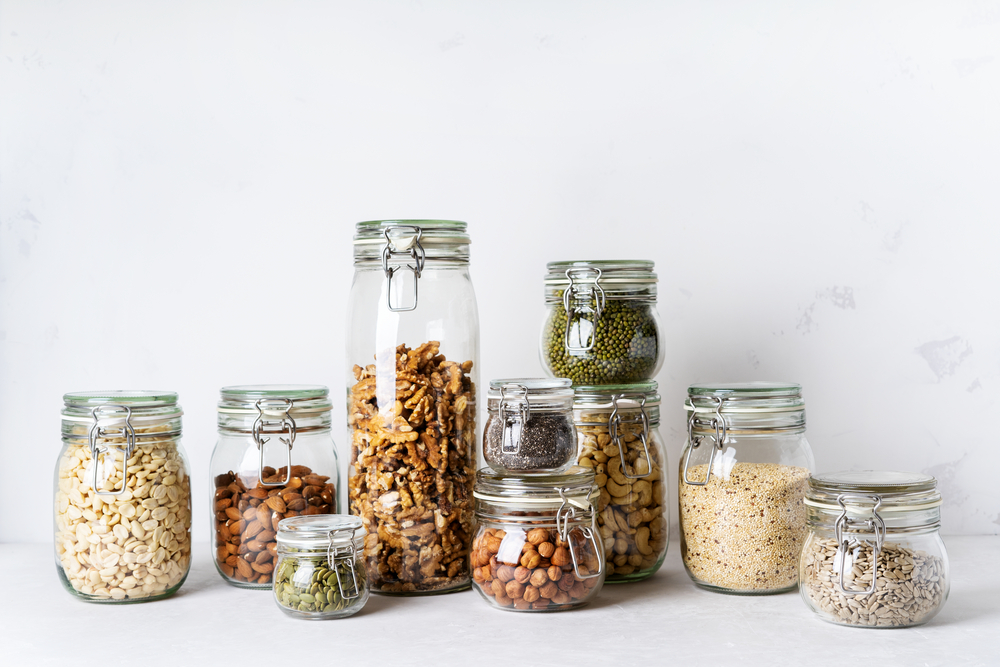In the landscape of food packaging, there have always been numerous materials competing for supremacy. Among these, glass has stood the test of time, continuously being used for centuries for its numerous advantages. Techpack, a notable supplier in the industry, asserts that the intrinsic properties of glass Bottles make it an ideal contender for the safest material in food packaging.
Health awareness and safety concerns have led many consumers and manufacturers alike to prefer glass bottle packaging for food and beverages. This article explores the various reasons why glass bottles and jars remain the optimal choice for ensuring food safety, highlighting their superior qualities and the benefits they bring to the food industry.
Non-Reactive Nature
One of the fundamental reasons glass is deemed superior for food safety is its non-reactive nature. Unlike plastics and metals that can leach chemicals into the food, especially under fluctuating temperatures, glass does not react with the contents it holds. This characteristic ensures that the flavour and quality of the product remain unaltered, reflecting the importance of material stability in preserving the integrity of food items.
Preservation of Freshness
Glass bottles and jars are excellent at preserving the freshness of their contents. They provide an impermeable barrier against external contaminants, including oxygen, which can lead to the spoilage of food. By creating a seal that is less permeable than their plastic counterparts, glass packaging plays a pivotal role in maintaining the product’s shelf life and thus ensuring food safety.
Toxic-Free and Sustainable
When food safety is mentioned, one must also consider the sustainability of the packaging used. Glass is a material made from natural raw materials, meaning it is virtually inert and free from harmful chemicals such as Bisphenol A (BPA), which has been found in certain plastics. Consequently, there is no risk of such toxins infiltrating the food chain from glass bottle packaging, making it a healthier choice for both consumers and the environment.
High-Grade Sterilisation
The ability to withstand high temperatures facilitates the thorough sterilisation of glass containers before use. This is essential for preventing the proliferation of bacteria and other pathogens that can compromise food safeness. Glass can be subjected to heat treatments that would deform other materials, reinforcing its status as a hygienic option for food-grade containers.
Recyclability Factor
Recycling is an important element of food safety, as it reduces the need for direct contact with potentially contaminating agents. Glass is one of the most recyclable materials, able to be reprocessed multiple times without loss of quality or purity. This feature not only benefits the environment but also supports the continuous cycle of safe food distribution.
Transparency for Visibility
The clear nature of glass provides a significant advantage in the form of product visibility. Being able to see the contents directly offers an immediate layer of trust for consumers and allows for the easy detection of any issues within the container. This transparency is an essential asset for food safety, fostering consumer confidence in the products they purchase.
Minimalism in Design
Glass packaging designs tend to adopt a minimalist approach due to the material’s inherent strength and suitability for various shapes. This minimalism can contribute to food safety by requiring fewer additional materials that could potentially introduce contaminants. Keeping the design simple with glass bottles and jars ensures that safety is not compromised by unnecessary complexity.
Premium Aesthetic Appeal
Aesthetic value is not merely a question of superficiality; it is closely tied to consumer perception of quality and safety. Glass bottles and jars offer a premium look that is associated with purity and high standards. This perception can encourage better handling, storage, and display practices that further support the agenda of food safety.
Influence of A Reputable Glass Bottle Supplier
Choosing the right glass bottle supplier is crucial in ensuring the highest quality packaging for food safety. Suppliers with a strong reputation, like Techpack, are more likely to follow rigorous standards to deliver glass packaging that is durable, fit for purpose and comply with safety regulations. This reaffirms the role of experienced suppliers in upholding food safety standards.
Legacy of Trust
Over time, glass has built a legacy of trust due to its consistent performance and the benefits it offers for food safety. Consumers and manufacturers regularly turn to glass because of this longstanding reputation, which confirms its effectiveness as a food packaging material.
Conclusion
In conclusion, when it comes to food safety, glass bottles and jars outperform other materials on multiple fronts. Their inertness, ability to preserve freshness, chemical-free composition, sterilisation capacity, recyclability, and transparency are all factors in their favour. Additionally, partnering with a reputable supplier like Techpack ensures the quality of glass packaging is maintained, further cementing glass’s place as a preferred material for food safety. As the awareness of these benefits continues to grow, the position of glass as a top choice for food and beverage packaging is likely to remain unchallenged in the foreseeable future.
Ensuring food safety is a multifaceted challenge that encompasses the quality of ingredients, storage conditions, and packaging integrity. Glass bottles and jars are uniquely suited to address these concerns, providing peace of mind for both producers and consumers. With the case for glass so compelling, it’s no surprise that it remains a leading solution in the quest for preserving the safety and quality of our food supply.


